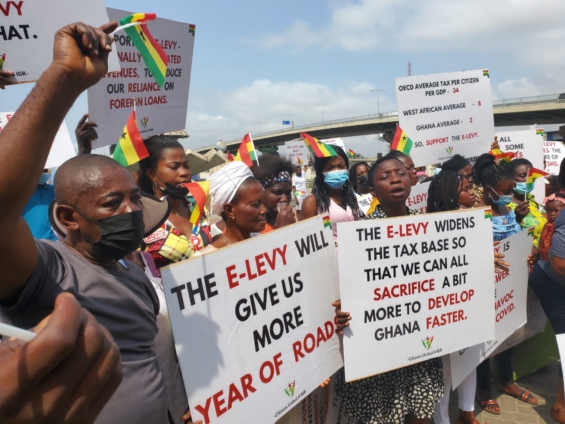Pressure group Assembly of Citizens United for Internally Generated Revenue is urging Ghanaians to accept the Electronic Transaction Levy (E-Levy).
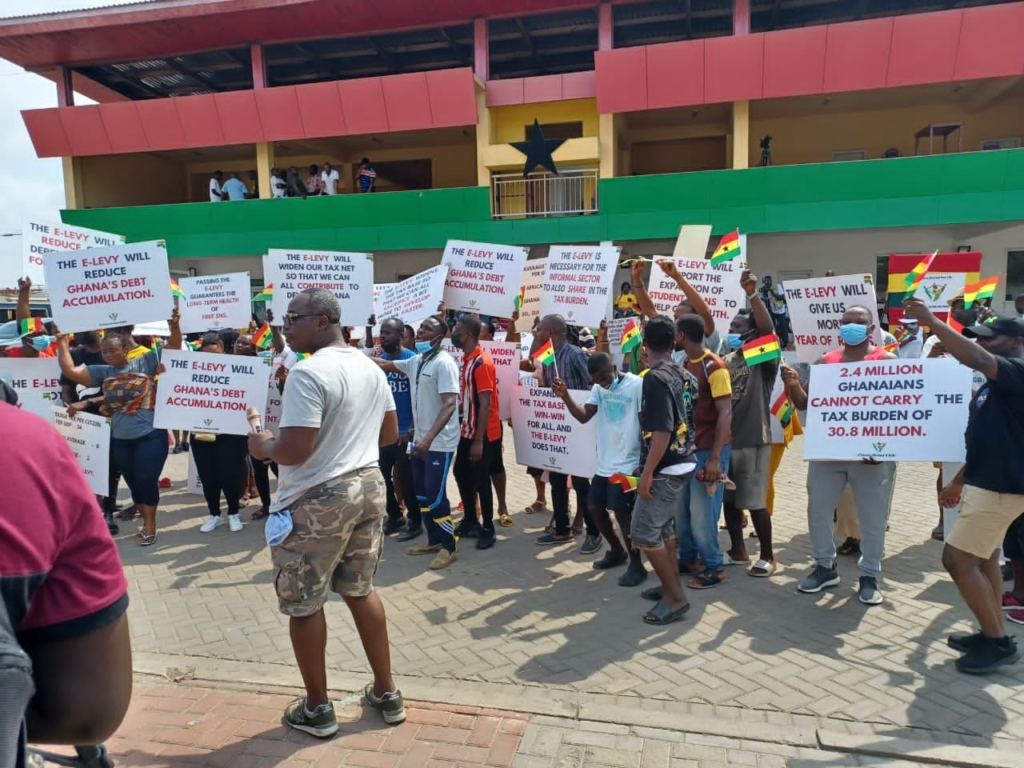
On Monday, the group went on a sensitisation walk to teach Ghanaians about the importance of the e-levy passing.
In an interview with JoyNews, the Convener of the group, Clifford Bansah, said the revenue generated will help resurrect the economy left in shambles due to the Covid-19 pandemic.
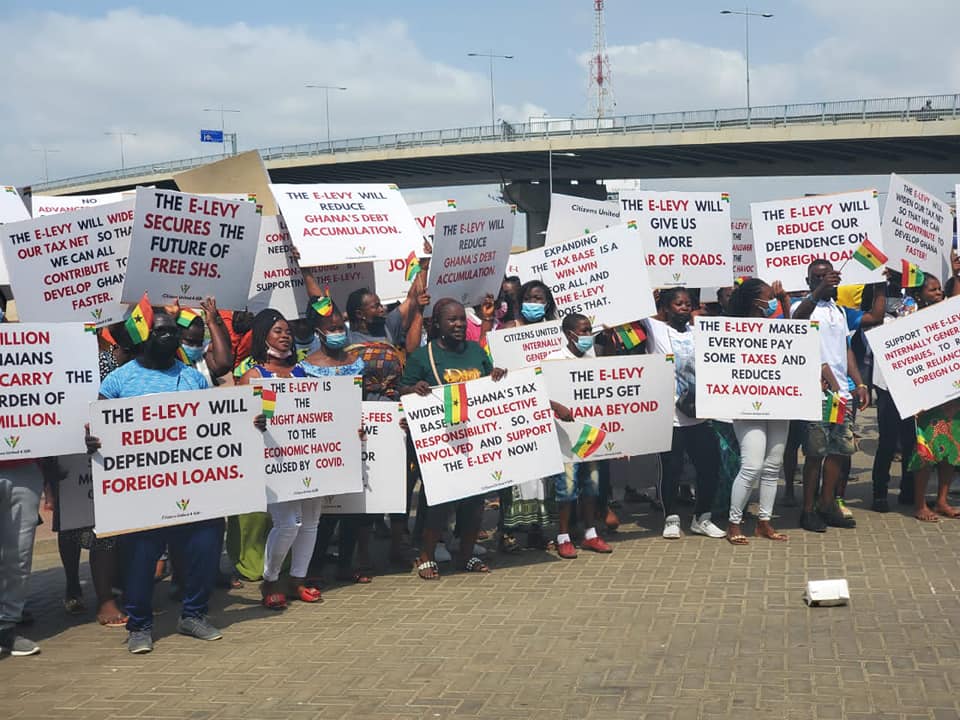
According to him, the widened tax net nature of the levy will help enable “those who are evading tax, those who simply don’t pay because they are not captured” also to contribute their percentage.
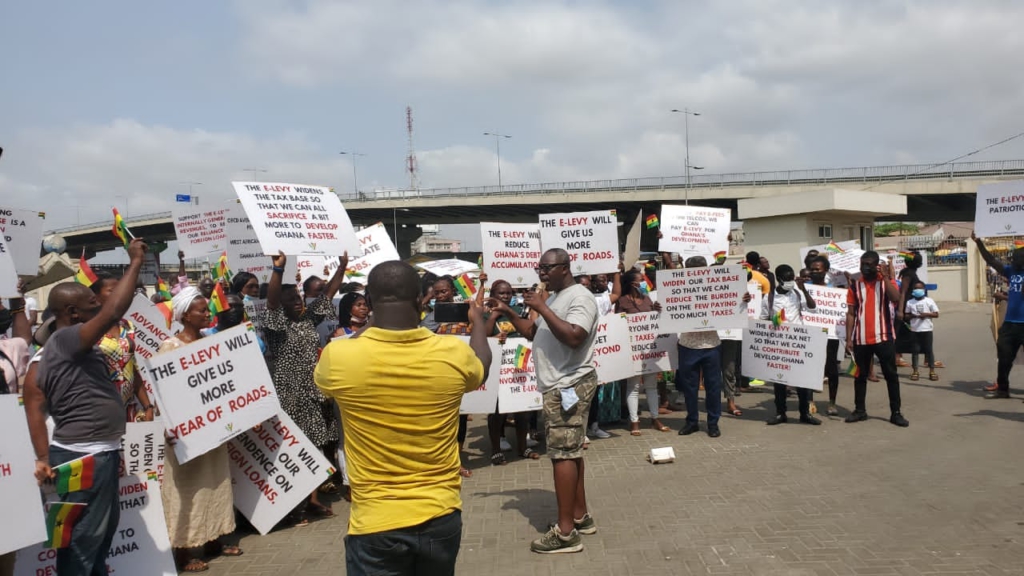
“When you widen it, you can capture a lot of people, and the infrastructure and the social amenities that we need will follow. It is simply that we are not collecting enough,” he told JoyNews.
He added that “the informal nature of our economy shows that we need to introduce taxes or levies like the e-levy that is wide enough that can capture everybody.”
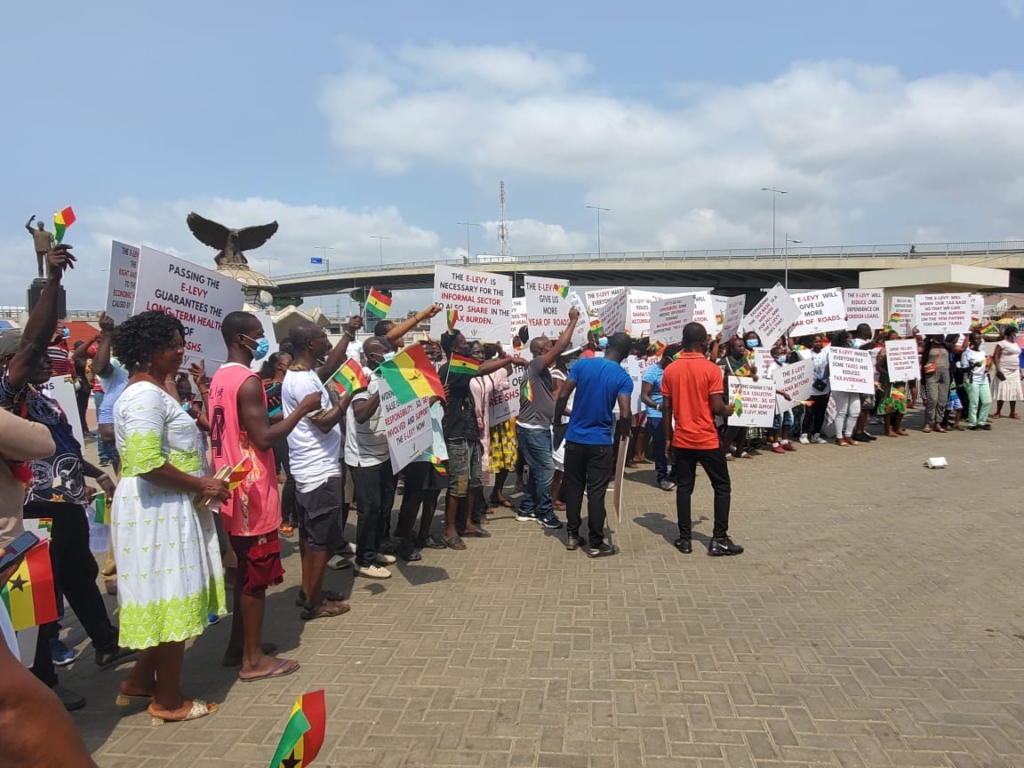
Meanwhile, former Finance Minister, Prof. Kwasi Botchway, has painted a gloomy image of Ghana’s economy, describing it as one that is suffering grave distress.Prof Botchway wants the government to thoroughly review the economy to cut expenditures and avoid measures that will mortgage Ghana’s future.
On Monday, he made these comments at a public lecture organised by the One Ghana Movement at the University of Ghana.
About E-levy
Finance Minister Ken Ofori-Atta, presenting the 2022 budget on Wednesday, November 17, announced that the government intends to introduce an Electronic Transaction Levy (e-levy).
The levy, he revealed, is being introduced to “widen the tax net and rope in the informal sector”. This followed a previous announcement that the government intends to halt the collection of road tolls.
The proposed levy, which was expected to come into effect in January 2022, is a charge of 1.75% on the value of electronic transactions. It covers mobile money payments, bank transfers, merchant payments, and inward remittances. There is an exemption for transactions up to GH¢100 per day.
Explaining the government’s decision, the Finance Minister revealed that the total digital transactions for 2020 were estimated to be over GH¢500 billion (about $81 billion) compared to GH¢78 billion ($12.5 billion) in 2016. Thus, the need to widen the tax net to include the informal sector.
Although the government has argued that it is an innovative way to generate revenue, scores of citizens and stakeholders expressed varied sentiments on its appropriateness, with many standing firmly against it.
Even though others have argued in support of the levy, a section of the populace believe that the 1.75% e-levy is an insensitive tax policy that will deepen the already prevailing hardship in the country.
Currently, government is organising a town hall meeting to sensitise Ghanaians on the need to accept and pay the e-levy.
Latest Stories
-
H-1B: Visa row under Trump fuels anxiety for Indian dreamers
30 minutes -
Huge problems with axing fact-checkers, Meta oversight board says
40 minutes -
Kyrgios says abdominal strain ‘not too serious’
1 hour -
Pound falls as borrowing costs rise to highest since 2008
1 hour -
Court to begin trial of two prisoners accused of escaping
1 hour -
Joe Biden says he could have defeated Donald Trump
2 hours -
Top South African singer Winnie Khumalo dies aged 51
4 hours -
All 4 independent MPs align with Majority Caucus, Ato Forson confirms
4 hours -
Bernard Ahiafor to lead Parliament’s Appointments Committee
4 hours -
Parliament approves Appointments Committee to vet key nominees
4 hours -
World Bank pledges ‘Better Bank’ vision to drive Ghana’s growth
5 hours -
MyHelp-YourHelp Foundation pays medical bills of detained nursing mothers at Tema General Hospital
5 hours -
Bergvall scores late winner as Spurs beat Liverpool in Carabao Cup first leg
5 hours -
Barca’s Olmo granted temporary permission to play
5 hours -
West Ham to appoint Potter after sacking Lopetegui
5 hours

